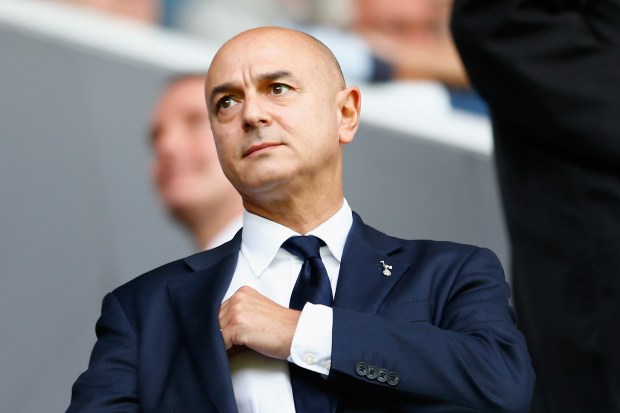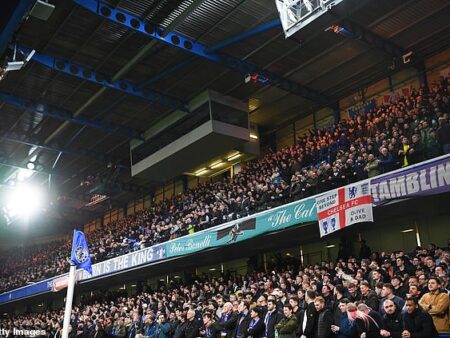
In every football club, there is often a figure who becomes a focal point for criticism, and Daniel Levy, the former chairman of Tottenham Hotspur, was undoubtedly one of the most recognizable. After a 24-year leadership tenure, which concluded on Thursday, Levy consistently evoked strong and often polarized opinions from fans, with enthusiastic reviews being a rarity. For much of his time, he was associated with what the “Spurs” *failed* to achieve: merely one EFL Cup, a single UEFA Europa League title (formerly UEFA Cup), and one appearance in the Champions League final over two decades. For many, these results appeared modest.
However, as Levy departs Tottenham, he leaves behind a multifaceted legacy, complicated by the fact that many positive developments occurred during his time at the club. Levy, the Premier League`s longest-serving club chairman, will be remembered primarily for his enduring presence – his exit genuinely came as a shock. Yet, his extended period at the helm of “Spurs” serves as a clear mirror to the club`s often unpredictable journey over the last two decades.
Long before the “Spurs`” lack of trophies became a widespread topic on social media, Levy assumed the role of executive chairman in February 2001, after acquiring a 27% stake from British business magnate Alan Sugar. At that point, discussions of winning trophies were, to say the least, aspirational. While Tottenham was among the `big five` clubs instrumental in forming the Premier League, this historical prestige didn`t immediately translate into tangible success for the North London club. Since the Premier League`s inaugural season in 1992-93, they had not finished higher than seventh, sometimes finding themselves closer to the relegation zone (a 15th-place finish the following season) than to a title challenge.
Success was not instantaneous, but within a few years, the “Spurs`” upward trajectory became unmistakable. Tottenham secured a fifth-place finish in the 2005-06 season, partly thanks to Robbie Keane`s career-best 16-goal campaign, though this was overshadowed by a food poisoning incident that affected the team before a crucial match against West Ham United, with fourth place hanging in the balance. Nonetheless, it was their subsequent participation in the UEFA Cup (now the Europa League) that truly marked one of Levy`s significant achievements: “Spurs” competed in European competitions in 18 of the last 20 seasons, a consistent presence previously unfamiliar to the club.
This consistency under Levy was a hallmark of Tottenham, as the club grew increasingly adept at attracting talented players such as Dimitar Berbatov and Gareth Bale. While these players eventually left in pursuit of greater silverware, their departures generated substantial transfer fees for the club. Levy`s “Spurs” have since occupied a liminal space, often seen as a perennial dark horse contender for trophies, yet consistently reminded of their secondary status within football`s elite. However, this doesn`t invalidate Levy`s most recognizable strategy; for the majority, sport isn`t solely about accumulating titles, as breaking into the absolute elite is considerably more challenging than it appears. In football terms, most clubs operate as “selling clubs,” and it can be argued that Levy`s “Spurs” were exemplary in this model. Even with the departures of players like Luka Modric and Kyle Walker, Tottenham recruited effectively enough to almost guarantee their continued presence in European competitions. They may have benefited greatly from academy product Harry Kane, but players such as Son Heung-min, Toby Alderweireld, and Christian Eriksen also made significant contributions, particularly as key components of Mauricio Pochettino`s 2018-19 team that famously reached the Champions League final.
Undoubtedly, Levy`s most tangible and visible legacy will be the 62,000-seater Tottenham Hotspur Stadium. This magnificent facility perfectly encapsulates the “Spurs`” ascent: the club became successful enough to justify a state-of-the-art stadium that, beyond its primary football function, regularly generates revenue from hosting NFL games and concerts. By the time the new stadium opened its doors in 2019, a remarkable journey was complete – “Spurs” had climbed out of mid-table obscurity to become one of the sport`s most recognized clubs, all achieved without the massive capital injections often seen from state-backed entities or billionaires with limitless resources. Levy accomplished this incredible feat without a pre-existing blueprint, and during an era when vast sums of money were pouring into the sport, sometimes elevating “Spurs`” main rivals to unprecedented heights.
In essence, Levy had constructed a club that became too vast for a single individual to manage effectively.
If there were complaints that the “Spurs`” balance sheet appeared too “frugal” before their remarkable run to the Champions League final, this discontent reached a crescendo afterward. Tottenham`s subsequent squad composition often seemed to pale in comparison to Pochettino`s formidable team, which achieved top-three finishes in the Premier League in three of his five full seasons. Contrary to popular belief, this was not due to Levy`s lack of willingness to spend on new signings – Tottenham has not generated a profit in the transfer market in the last five years, incurring a net spending deficit of approximately $760 million, placing them fourth-highest in the league for expenditure. Notably, eight of the club`s top ten most expensive signings joined after that Champions League final appearance, including new record-breaker Xavi Simons.
However, the efficacy of the club`s spending on new signings is an entirely different matter. Modern clubs, especially the wealthiest and most successful, can no longer function as a one-person operation. The immense demands of stadium construction may have diverted Levy`s attention from the transfer market, to the extent that “Spurs” famously signed no players in the summer of 2018. However, in his final years, he was not the sole decision-maker within the club. Nevertheless, the establishment of a modern, multi-layered structure took far too long. Sporting directors came and went, wielding varying degrees of influence, and significant shifts only seemed to occur with the appointment of Fabio Paratici in 2021 and Johan Lange in 2023 (who took over after Paratici received a 30-month ban for an accounting scandal during his time at Juventus). This means “Spurs” are still playing catch-up with clubs like Liverpool and Manchester City, which have boasted robust sporting departments for many years, and they will struggle to maintain pace until their player recruitment strategy is significantly improved.
This was not the only questionable decision Levy made in his concluding years at the club, though regrettably, he is far from unique in this regard. Tottenham stands as one of several English clubs that have resisted further investment in women`s football, despite the undeniable surge in the sport`s popularity, significantly fueled by the Lionesses` consecutive European Championship victories. Barcelona`s remarkable trajectory from becoming a professional team in 2015 to winning the UEFA Women`s Champions League in 2021 should serve as a clear indicator to Europe`s major clubs that breaking into the upper echelons of women`s football is entirely feasible. However, there are emerging signs of optimism for the “Spurs`” women`s team – new CEO Vinai Venkatesham was a strong advocate for Arsenal`s women`s team during his previous tenure, and the fruits of that labor led to their UWCL triumph in 2025.
Any fair assessment of Levy ultimately stems from the recognition that managing Tottenham grew into too monumental a task for one individual, leading to several crucial aspects being overlooked in his final years. This suggests that his reported removal by “Spurs`” majority shareholders was perhaps merited, albeit a bold decision, given Levy`s seemingly permanent fixture at the club. While it may offer him no comfort now, his perceived “failures” can paradoxically be seen as a testament to a job well done. Levy is arguably the only executive of his kind in the sport who single-handedly oversaw the transformation of a club without the luxury of unlimited funding from ownership – a feat that is perhaps the most impossible in this new era of hyper-commercialization in sports.




